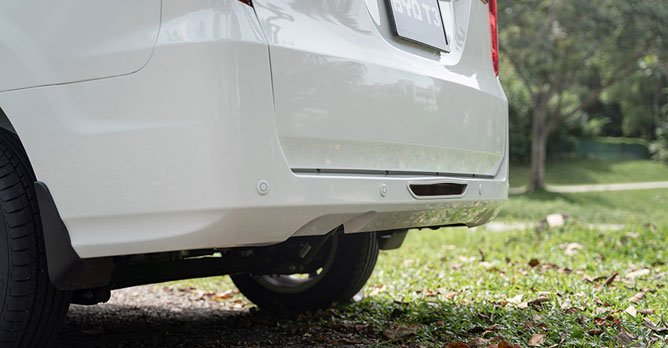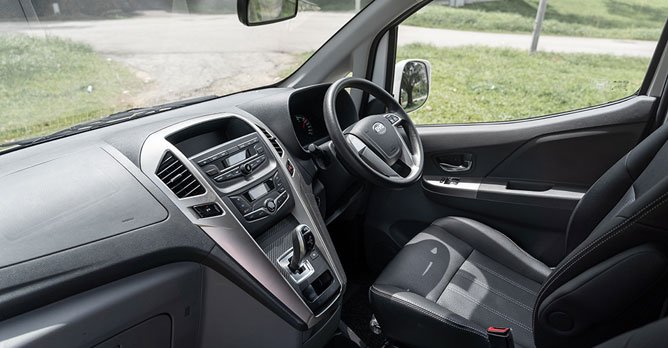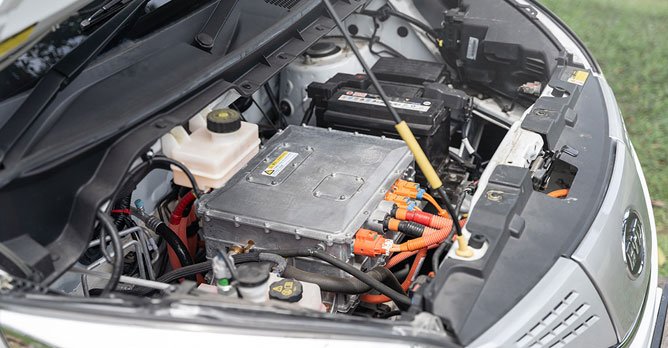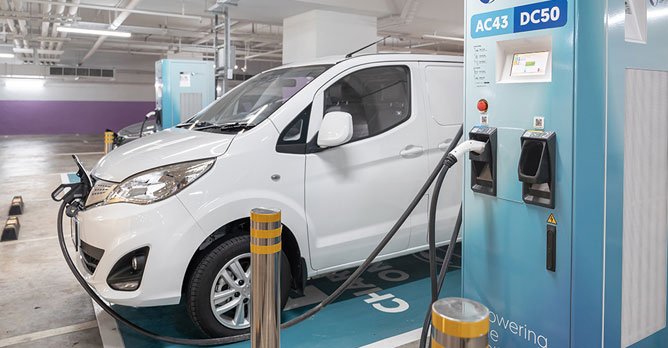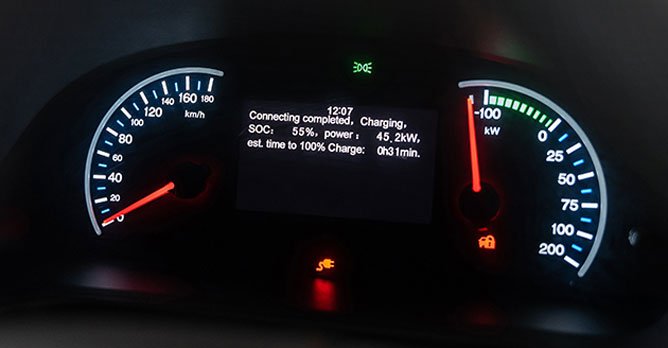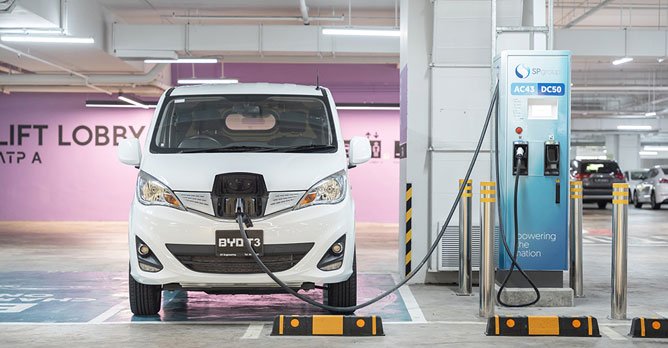Here's why the BYD T3 electric van is a brilliant proposition for your company
10 Sep 2020|10,721 views
Electric vehicles are much more common these days. Thanks to the advancement in battery technology, electric cars now offer much more useable range as compared to its predecessors from not too long ago. Electric vehicles offer many perks, among which is a smoother, silent hence more comfortable drive, as well as zero emissions.
Alongside electric cars on the roads are electric commercial vehicles such as the BYD T3 van. In fact, with the high number of commercial vehicles on the road and their extensive usage, having more electric vehicles would play a substantial part in protecting the environment. Furthermore, electrifying your company's fleet has more immediate benefits than that. It also brings about higher efficiency and cost savings! Read on to find out more.
Environmental friendly - say goodbye to exhaust fumes
The biggest difference between an internal combustion vehicle and an electric car is its tailpipe emissions. In fact, electric vehicles do not even have a tailpipe, they do not emit any greenhouse gases or other pollutants.
This also means that you will not have a warehouse full of exhaust fumes if you have to keep your vehicle running while cargo is being loaded up. As commercial vehicles tend to spend much more time on the roads as compared to a private car, the environmental effect will be substantial.
Smooth performer - ease of use with a smooth ride
An internal combustion engine produces torque and power over a specific, small range of engine speed (RPM), meanwhile, an electric car's motor, can produce maximum torque almost instantaneously and is power efficient throughout its entire rev range - from zero up to around 18,000rpm typically.
Why does this matter? Well, it means that electric cars do not require a multi-speed gearbox, and hence no gear changes are involved. With a single speed transmission, the T3 provides a buttery smooth acceleration experience.
While it might take a little getting used to for the usual driver, you will come to enjoy its silent and smooth ride with instantaneous torque when you need it - yep, we know, torque is important when it comes to hauling cargo. A smoother drive also means a smoother ride for your cargo as well.
Minimal maintenance - reduced maintenance costs and downtime
Electric vehicles benefit from a much simpler maintenance routine. As they do not have a reciprocating engine that require regular fluid changes, an electric vehicle maintenance procedure consists of lesser components and are hence more cost-effective.
With an electric vehicle, there are no spark plugs, belts, air filter and engine oil change required. The BYD T3 also features a two-stage regenerative braking selection which will regenerate and extend battery life while reducing wear on brake components.
Long term savings - charging cost is significantly lower than petrol cost
While electric vehicle are high tech and usually a costlier option upfront, they work hard to make your money worth in the long run. Furthermore, the upcoming CVES incentive scheme by NEA brings down the cost of the BYD T3 to the ballpark of its gasoline counterparts.
Generally, electricity tariff costs about $0.03/km for the BYD T3, meanwhile fuel costs are approximately $0.09/km and $0.14/km for diesel vans and petrol vans respectively. This means owners enjoy up to 75% fuel cost savings compared to a gasoline powered van. Do the maths and you will immediately realise just how much savings it offers!
Excellent reliability - BYD's proprietary lithium-ion battery technology
The BYD T3's NCM battery is safe to use, reliable and environmentally friendly. Using BYD's proprietary lithium-ion technology, the NCM battery manages 300km of range.
It also features a proprietary Battery Management System (BMS) that assists with balancing and charging safety. This state-of-the-art battery features a large capacity with long life cycle and can be charged quickly.
Practical solution - fully charged in 1.5 hours, excellent cargo hauling capability
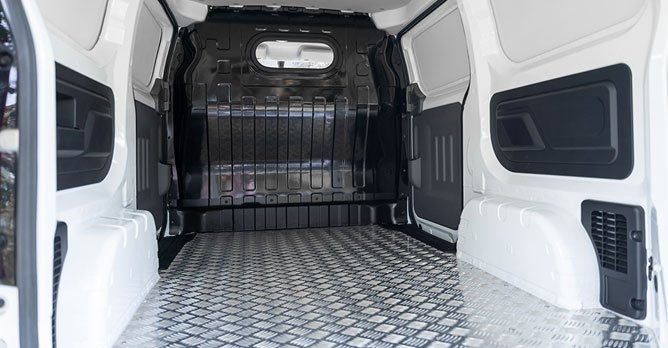
Here's why the BYD T3 is perfect for your company, it features a wide cargo hold with anti-skid and wear-resistant aluminium alloy floor - there is no need to spend more on custom flooring, it comes ready to haul cargoes! It also comes with draw buckles to hold down cargoes during transport. With 3,800-litres of cargo space and a payload of 780kg, the BYD T3 offers much useable space to cater to your transportation needs.
Amazing savings - reap the benefits of NEA's upcoming scheme
At $93,800, the BYD T3 is an affordable electric van. Moreover, with the introduction of the Commercial Vehicle Emission Scheme starting from April 2021, you stand to enjoy a $30,000* rebate when you purchase a BYD T3, sweetening this already great proposition further!
ST Engineering is the authorised distributor for the BYD T3. Want to find out more about the BYD T3? Check out ST Engineering's website.
*The LTA has announced on 15 November 2022 that CVES Band A rebates will be changed from a total of $30,000 to $15,000 starting from 1 April 2023.
Electric vehicles are much more common these days. Thanks to the advancement in battery technology, electric cars now offer much more useable range as compared to its predecessors from not too long ago. Electric vehicles offer many perks, among which is a smoother, silent hence more comfortable drive, as well as zero emissions.
Alongside electric cars on the roads are electric commercial vehicles such as the BYD T3 van. In fact, with the high number of commercial vehicles on the road and their extensive usage, having more electric vehicles would play a substantial part in protecting the environment. Furthermore, electrifying your company's fleet has more immediate benefits than that. It also brings about higher efficiency and cost savings! Read on to find out more.
Environmental friendly - say goodbye to exhaust fumes
The biggest difference between an internal combustion vehicle and an electric car is its tailpipe emissions. In fact, electric vehicles do not even have a tailpipe, they do not emit any greenhouse gases or other pollutants.
This also means that you will not have a warehouse full of exhaust fumes if you have to keep your vehicle running while cargo is being loaded up. As commercial vehicles tend to spend much more time on the roads as compared to a private car, the environmental effect will be substantial.
Smooth performer - ease of use with a smooth ride
An internal combustion engine produces torque and power over a specific, small range of engine speed (RPM), meanwhile, an electric car's motor, can produce maximum torque almost instantaneously and is power efficient throughout its entire rev range - from zero up to around 18,000rpm typically.
Why does this matter? Well, it means that electric cars do not require a multi-speed gearbox, and hence no gear changes are involved. With a single speed transmission, the T3 provides a buttery smooth acceleration experience.
While it might take a little getting used to for the usual driver, you will come to enjoy its silent and smooth ride with instantaneous torque when you need it - yep, we know, torque is important when it comes to hauling cargo. A smoother drive also means a smoother ride for your cargo as well.
Minimal maintenance - reduced maintenance costs and downtime
Electric vehicles benefit from a much simpler maintenance routine. As they do not have a reciprocating engine that require regular fluid changes, an electric vehicle maintenance procedure consists of lesser components and are hence more cost-effective.
With an electric vehicle, there are no spark plugs, belts, air filter and engine oil change required. The BYD T3 also features a two-stage regenerative braking selection which will regenerate and extend battery life while reducing wear on brake components.
Long term savings - charging cost is significantly lower than petrol cost
While electric vehicle are high tech and usually a costlier option upfront, they work hard to make your money worth in the long run. Furthermore, the upcoming CVES incentive scheme by NEA brings down the cost of the BYD T3 to the ballpark of its gasoline counterparts.
Generally, electricity tariff costs about $0.03/km for the BYD T3, meanwhile fuel costs are approximately $0.09/km and $0.14/km for diesel vans and petrol vans respectively. This means owners enjoy up to 75% fuel cost savings compared to a gasoline powered van. Do the maths and you will immediately realise just how much savings it offers!
Excellent reliability - BYD's proprietary lithium-ion battery technology
The BYD T3's NCM battery is safe to use, reliable and environmentally friendly. Using BYD's proprietary lithium-ion technology, the NCM battery manages 300km of range.
It also features a proprietary Battery Management System (BMS) that assists with balancing and charging safety. This state-of-the-art battery features a large capacity with long life cycle and can be charged quickly.
Practical solution - fully charged in 1.5 hours, excellent cargo hauling capability

Here's why the BYD T3 is perfect for your company, it features a wide cargo hold with anti-skid and wear-resistant aluminium alloy floor - there is no need to spend more on custom flooring, it comes ready to haul cargoes! It also comes with draw buckles to hold down cargoes during transport. With 3,800-litres of cargo space and a payload of 780kg, the BYD T3 offers much useable space to cater to your transportation needs.
Amazing savings - reap the benefits of NEA's upcoming scheme
At $93,800, the BYD T3 is an affordable electric van. Moreover, with the introduction of the Commercial Vehicle Emission Scheme starting from April 2021, you stand to enjoy a $30,000* rebate when you purchase a BYD T3, sweetening this already great proposition further!
ST Engineering is the authorised distributor for the BYD T3. Want to find out more about the BYD T3? Check out ST Engineering's website.
*The LTA has announced on 15 November 2022 that CVES Band A rebates will be changed from a total of $30,000 to $15,000 starting from 1 April 2023.
Thank You For Your Subscription.





































